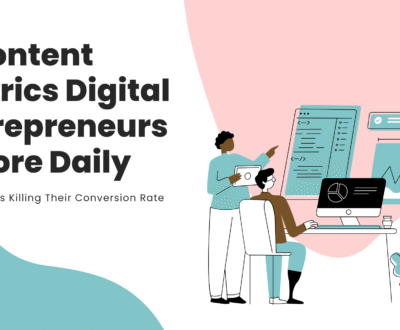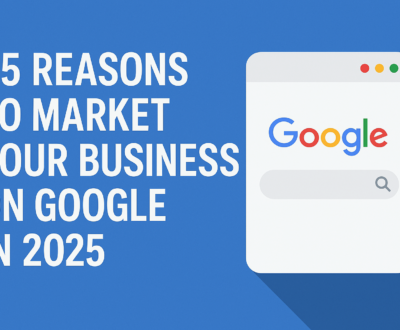The Power of a Well-Optimised Website: Your Key to Business Success
- July 22, 2024
- Uncategorized
Can this singular marketing activity turn more website visitors to buyers?
In today’s digital age, a website is more than just an online brochure.
It’s the heartbeat of your business’s online presence. Whether you’re a small local shop or a large corporation, your website often serves as the first point of contact between you and potential customers.
But not all websites are created equal. A well-optimised, high-converting website can be the difference between thriving in the digital marketplace and getting lost in the noise.
The Importance of Websites for Businesses
A website is your 24/7 salesperson, brand ambassador, and customer service representative all rolled into one. It’s working for you round the clock, providing information, showcasing your products or services, and potentially even making sales while you sleep. In an era where consumers turn to the internet first for information and solutions, not having a website is like not existing for a large portion of your potential market.
What Should a Simple Business Website Include?
Even if you’re just starting out, your website should have these essential elements:
1. Clear, concise homepage: This should immediately communicate what your business does and why visitors should care.
2. About Us page: Tell your story and build trust with potential customers.
3. Products/Services page: Clearly outline what you offer.
4. Contact information: Make it easy for people to reach you.
5. Call-to-Action (CTA): Guide visitors towards the next step, whether it’s making a purchase, signing up for a newsletter, or requesting a quote.
6. Mobile responsiveness: Ensure your site looks good and functions well on all devices.
7. Basic SEO: Implement fundamental search engine optimisation to help people find you online.
But what exactly is Website Optimisation?
Website optimisation is the process of improving your site’s performance to achieve your business goals, whether that’s increasing sales, generating leads, or boosting brand awareness. It involves enhancing various aspects of your website to improve user experience, increase visibility in search engines, and ultimately, drive more conversions.
The Importance of Website Optimisation
Many websites, once launched, are left to gather digital dust. But those that embrace ongoing optimization reap significant rewards:
Benefits of continuous website improvement:
1. Improved User Experience: An optimised website is easier to navigate and use, keeping visitors engaged longer.
2. Higher Search Engine Rankings: Optimisation practices align with what search engines value, helping you rank higher in search results.
3. Faster Load Times: Optimised sites load quickly, reducing bounce rates and improving user satisfaction.
4. Increased Conversions: When your site is easy to use and find, more visitors are likely to take desired actions.
5. Better ROI: An optimised website makes the most of your digital marketing efforts, providing better returns on your investment.
Why bother with Optimisation?
Website conversion is the process of turning site visitors into customers or leads. Your conversion rate is a key metric that indicates how effectively your website is achieving its goals. A good conversion rate varies by industry, but generally, anything above 2-5% is considered positive.
Reasons Why Your Website Might Not Be Converting
1. Slow Load Times: If your site takes more than a few seconds to load, visitors may leave before even seeing your content.
2. Poor Mobile Experience: With more people browsing on mobile devices, a non-responsive site can severely hurt your conversions.
3. Unclear Value Proposition: If visitors can’t quickly understand what you offer and why it matters, they’re likely to leave.
4. Complicated Navigation: If users can’t easily find what they’re looking for, they’ll go elsewhere.
5. Lack of Trust Signals: Without elements like customer reviews, security badges, or clear policies, visitors may not feel confident doing business with you.
6. Weak Call-to-Action: If your CTAs are vague, hidden, or unappealing, users won’t know what steps to take next.
7. Irrelevant or Low-Quality Content: Content that doesn’t address user needs or is poorly written can drive visitors away.
Other Key Points for Website Success
1. Regular Updates: Keep your content fresh and relevant to both users and search engines.
2. Analytics: Use tools like Google Analytics to understand user behaviour and make data-driven decisions.
3. A/B Testing: Continuously test different elements of your site to see what resonates best with your audience.
4. Page Speed Optimisation: Regularly check and improve your site’s loading speed.
5. Security: Ensure your site is secure, especially if handling sensitive information.
6. Accessibility: Make your site usable for people with disabilities to broaden your audience and improve user experience for everyone.
Conclusion
Your website is one of your most powerful business tools. By focusing on optimisation and conversion strategies, you can transform it from a simple online presence into a dynamic, revenue-generating asset. Remember, website optimisation is not a one-time task but an ongoing process. Stay informed about best practices, listen to your users, and be willing to adapt. With persistence and the right strategies, you can create a website that not only attracts visitors but converts them into loyal customers.
Are you ready to take your website to the next level? Start by analysing your current site against these points and identify areas for improvement. Your future customers are out there—make sure your website is ready to welcome them!
One response to “The Power of a Well-Optimised Website: Your Key to Business Success”
-
I’m really impressed along with your writing abilities as neatly as with the structure for your weblog. Is that this a paid subject matter or did you customize it your self? Either way keep up the excellent quality writing, it is uncommon to see a nice blog like this one today!
NC Digital Consult
About us and this blog
We are a digital marketing company with a focus on helping our customers achieve great results across several key areas.
Subscribe to our newsletter!
More from our blog
See all posts-
affilionaire.org
- April 13, 2025
I’m really impressed along with your writing abilities as neatly as with the structure for your weblog. Is that this a paid subject matter or did you customize it your self? Either way keep up the excellent quality writing, it is uncommon to see a nice blog like this one today!
Recent Posts
- 3 Secrets About Colour Psychology Every Digital Marketer Should Know. June 23, 2025
- Your offer isn’t the problem — inaction is June 11, 2025
- 3 Content Metrics Most Digital Entrepreneurs Ignore Daily May 23, 2025










Leave a Reply